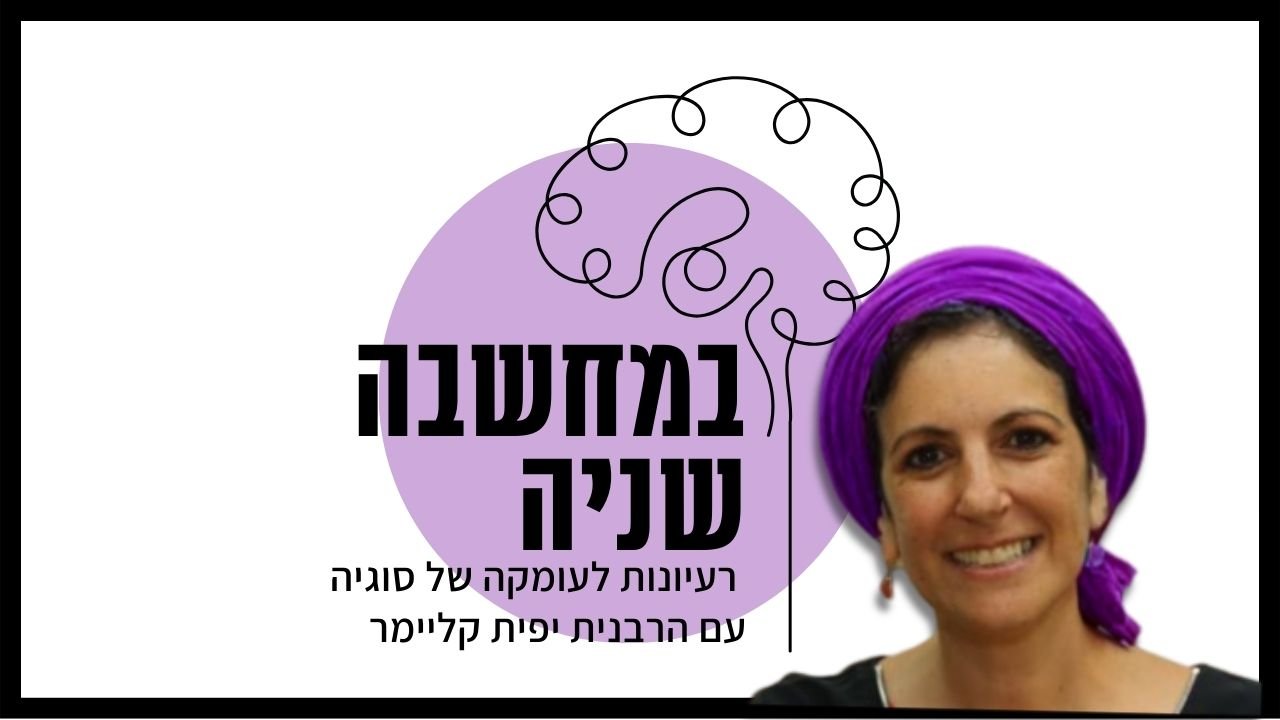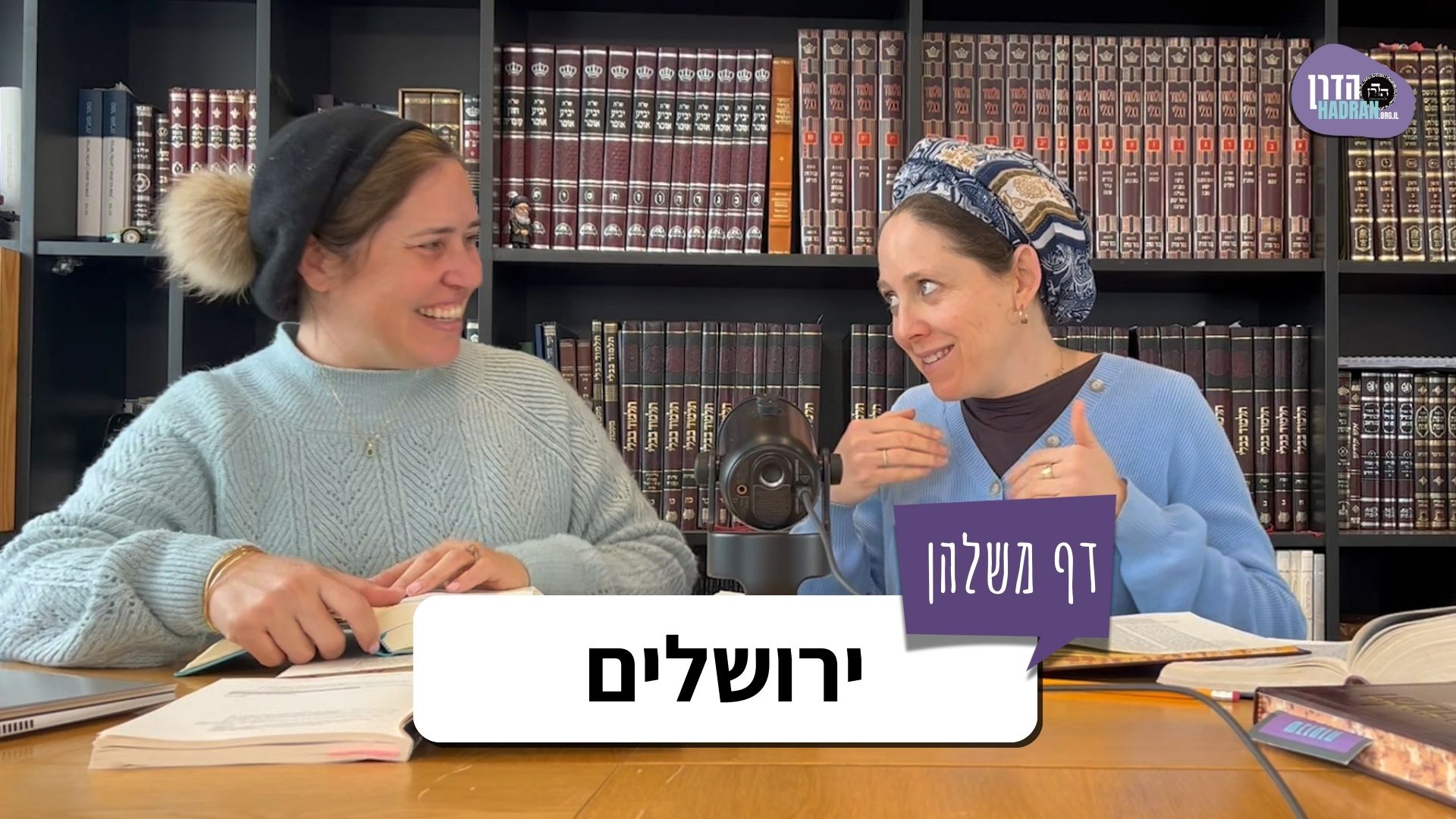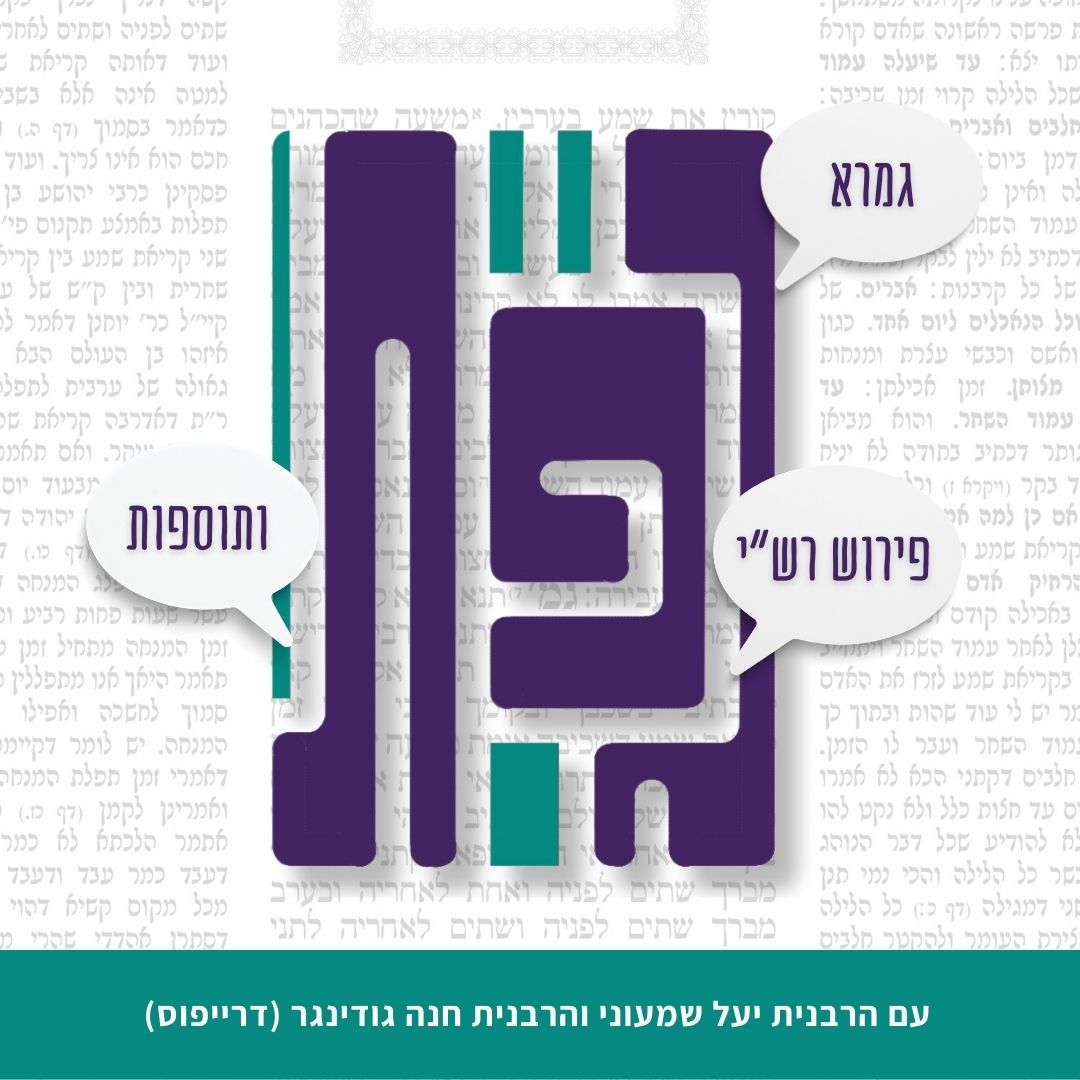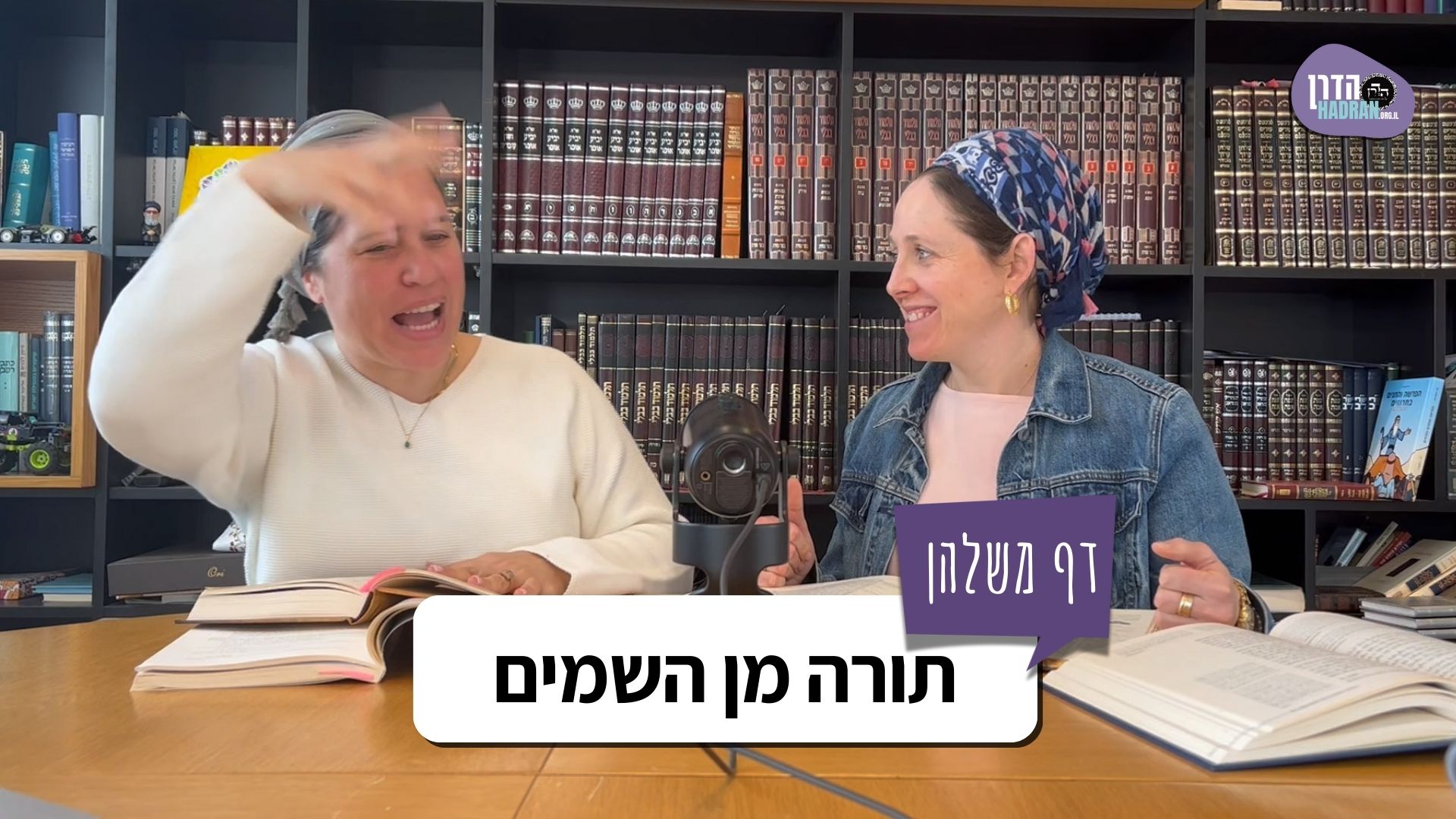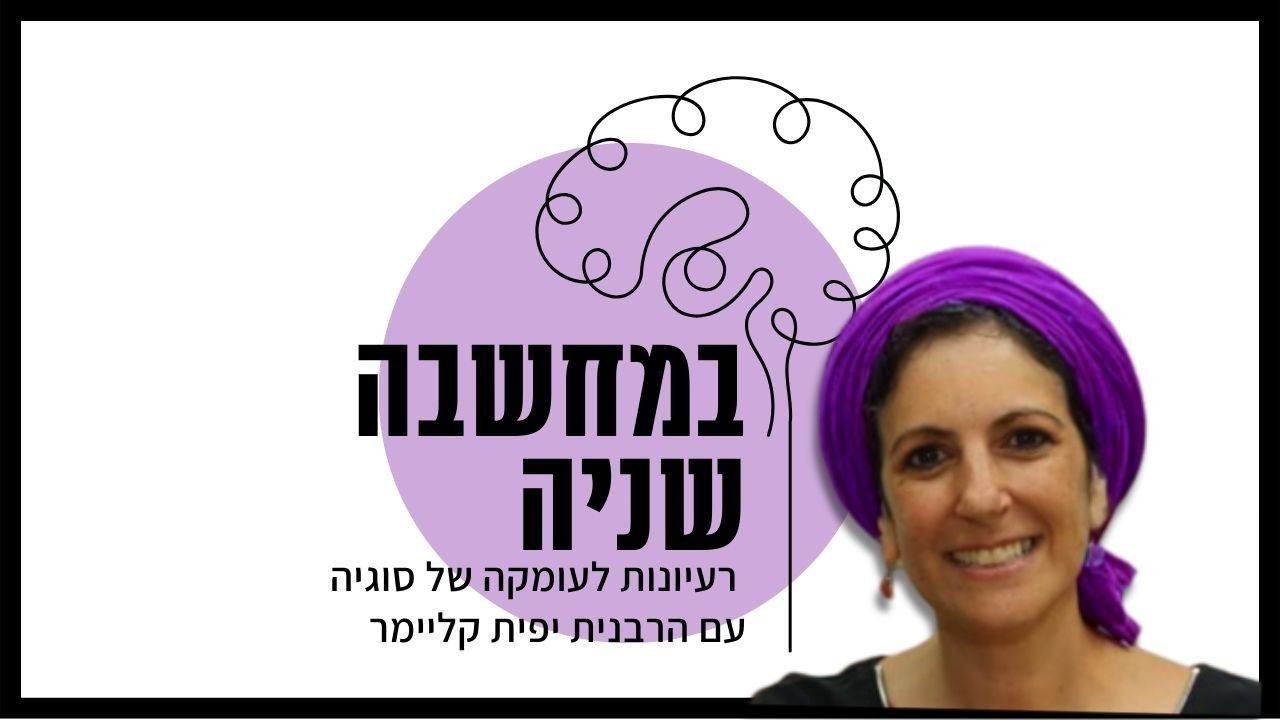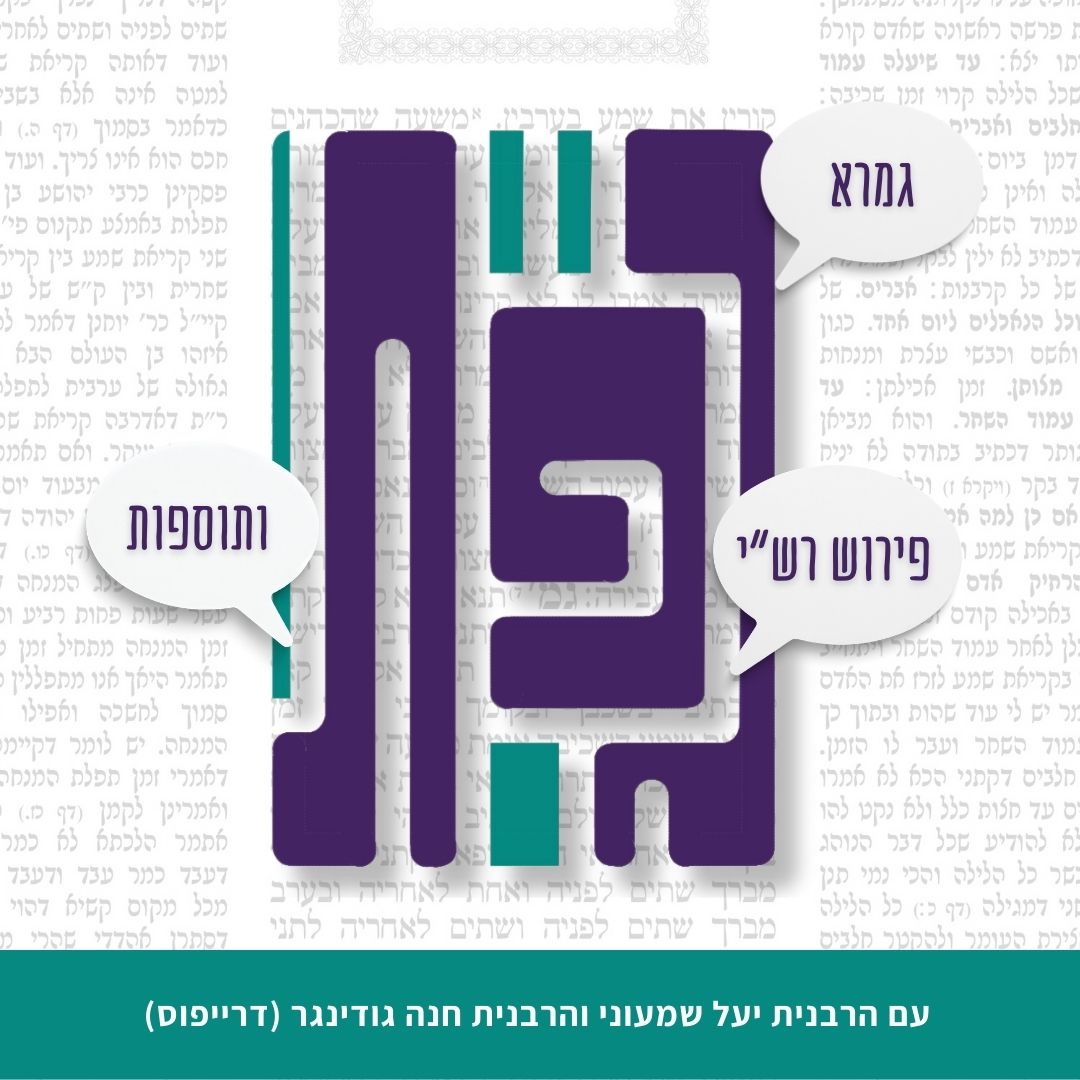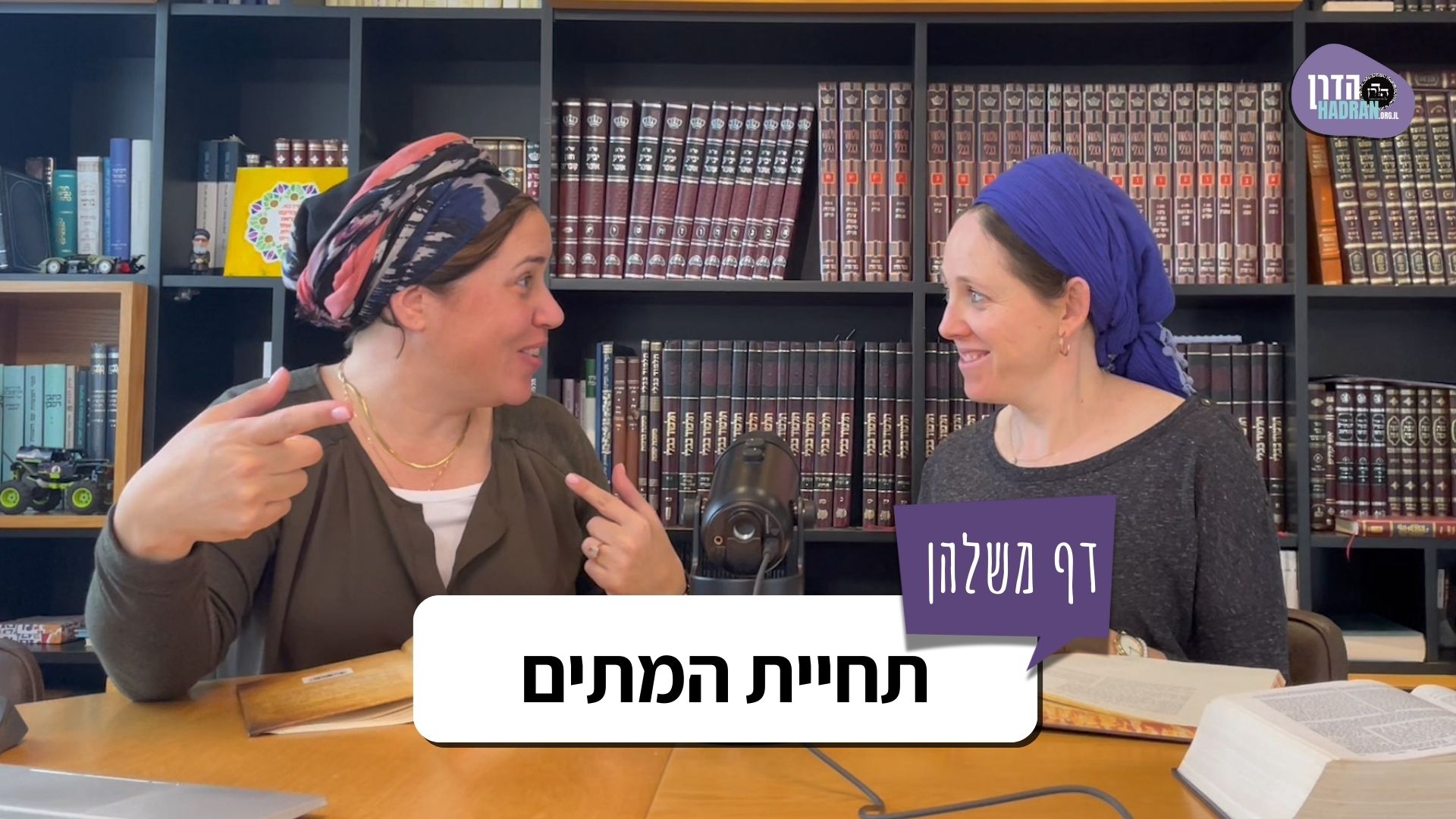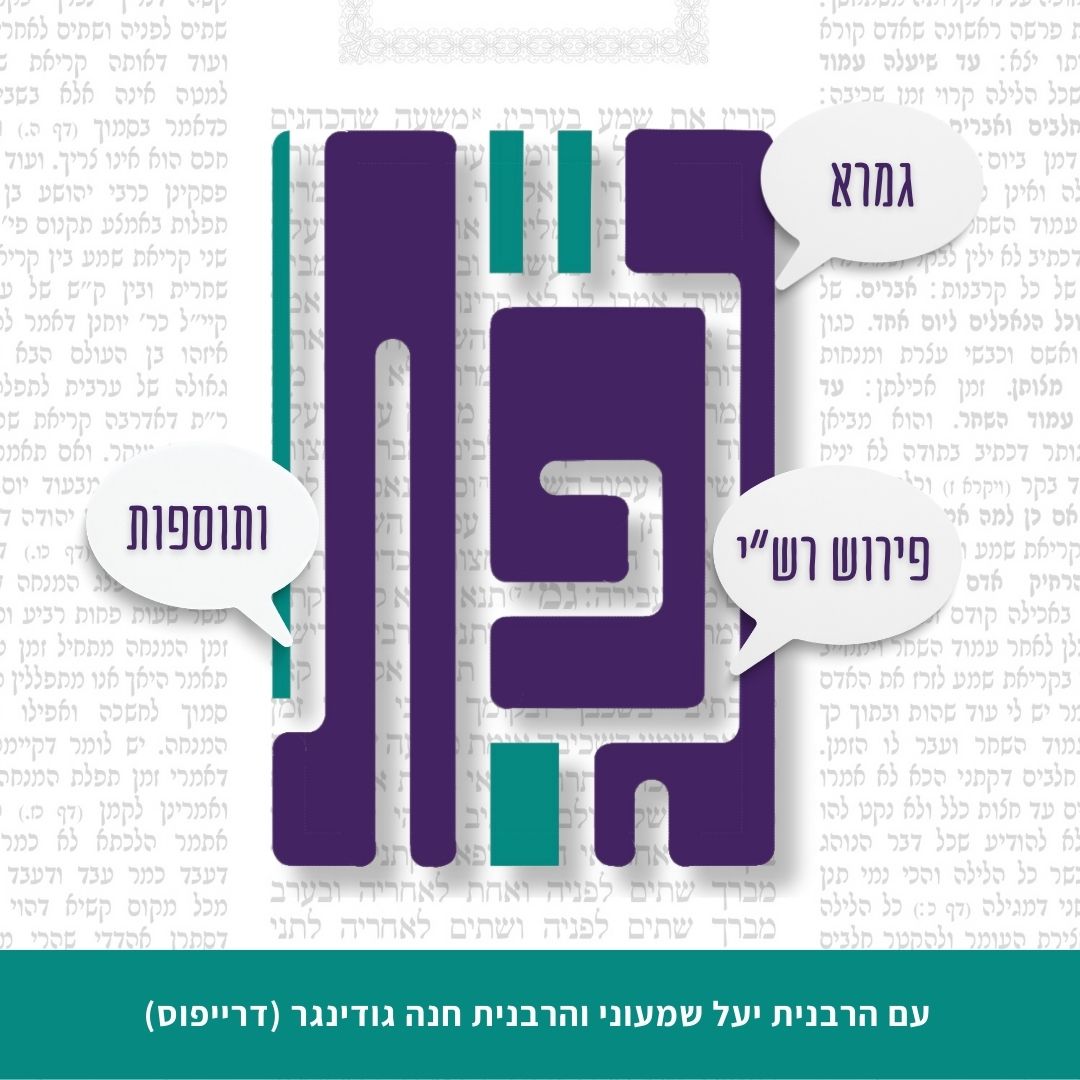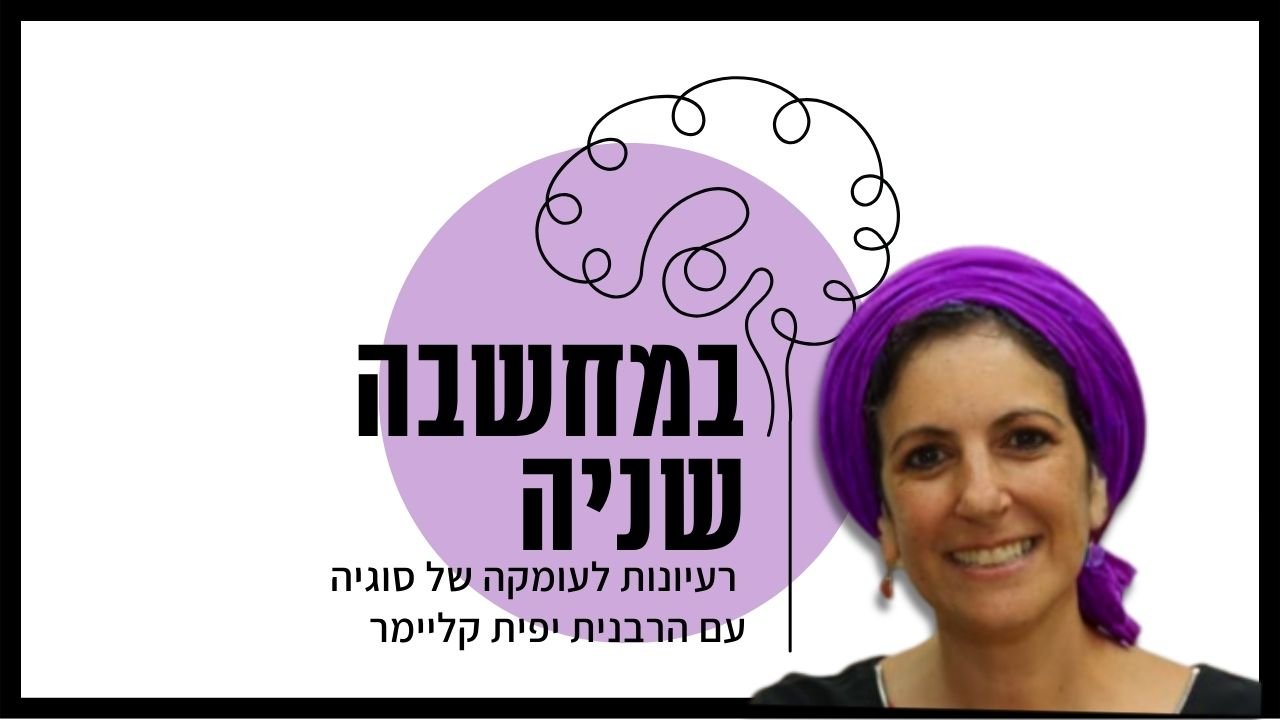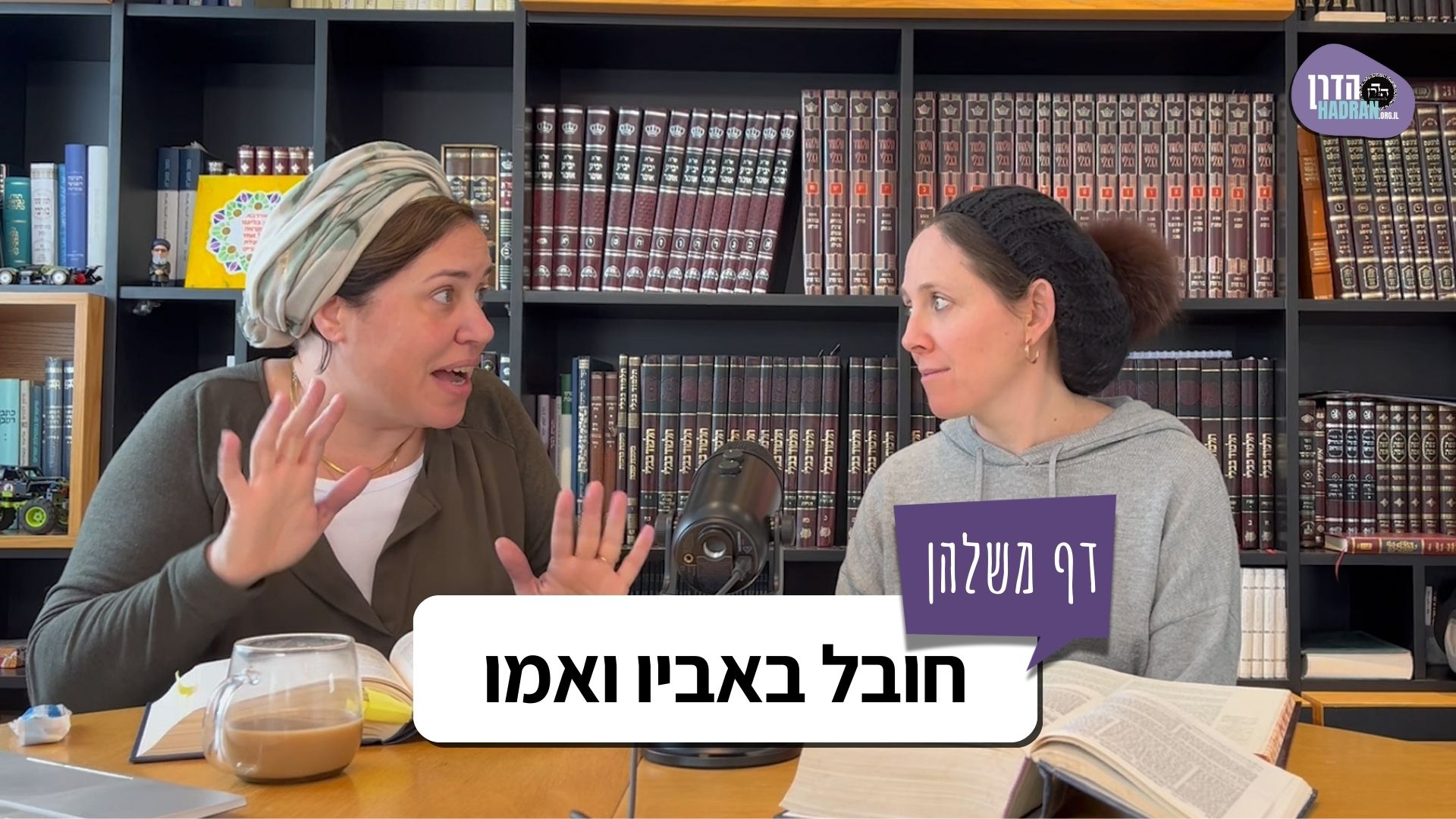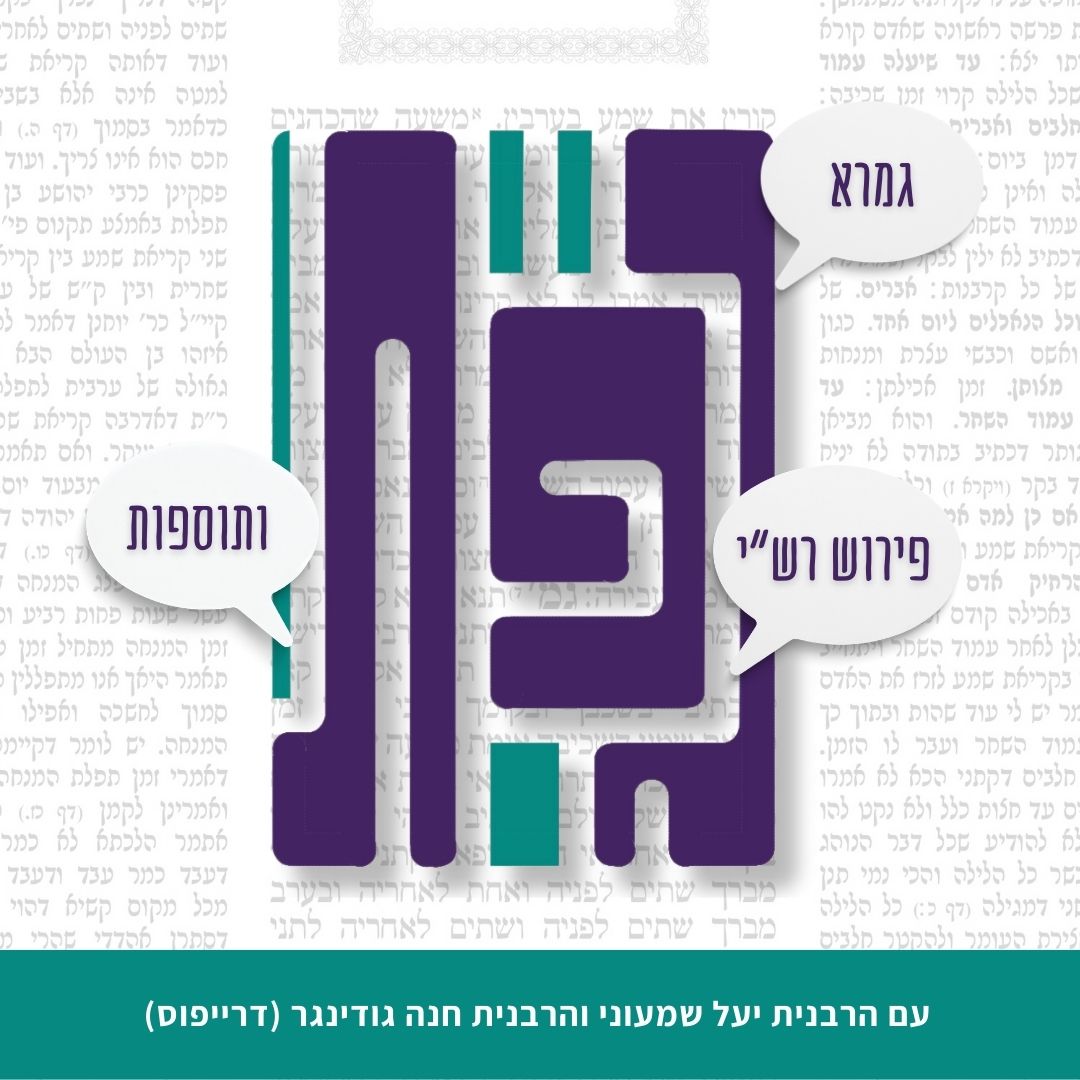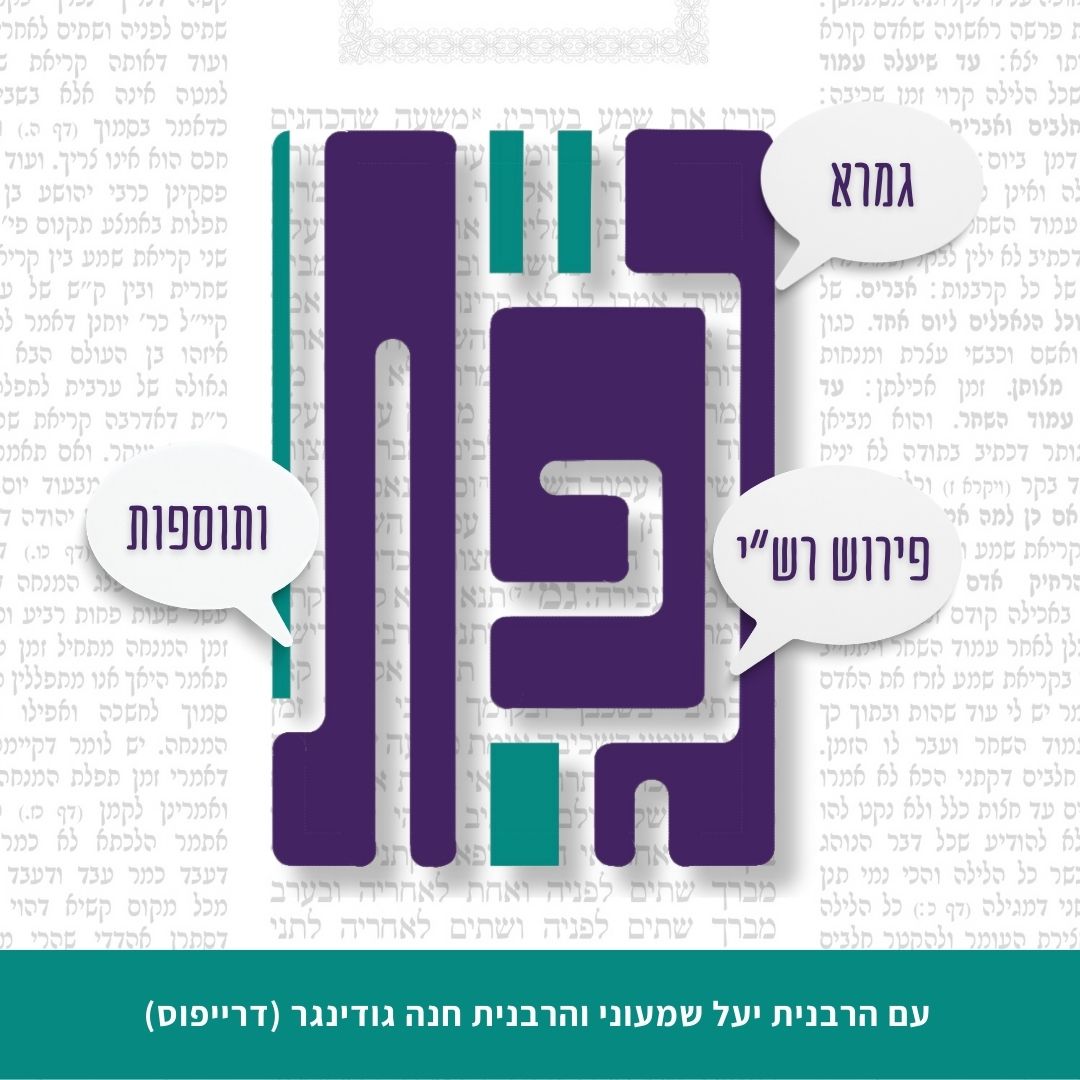סנהדרין קי
וּסְתַרְתֵּהּ לְמַזְּיַהּ, כֹּל דַּאֲתָא חַזְיַהּ הֲדַר. אַדְּהָכִי וְהָכִי, אִבְּלַעוּ לְהוּ.
and exposed her hair as though she were bathing. Anyone who came and saw her stepped back. In the meantime the assembly of Korah was swallowed into the ground, and On, son of Peleth, was spared.
אִיתְּתֵיהּ דְּקֹרַח אֲמַרָה לֵיהּ: חֲזִי מַאי קָעָבֵיד מֹשֶׁה. אִיהוּ הֲוָה מַלְכָּא, לַאֲחוּהּ שַׁוְּויֵהּ כָּהֲנָא רַבָּא, לִבְנֵי אֲחוֹהִי שַׁוִּינְהוּ סְגָנֵי דְּכָהֲנָא. אִי אָתְיָא תְּרוּמָה אָמַר ״תֶּיהְוֵי לְכָהֵן״, אִי אָתוּ מַעֲשֵׂר דְּשָׁקְלִיתוּ אַתּוּן אָמַר ״הַבוּ חַד מֵעַשְׂרָה לְכָהֵן״. וְעוֹד דְּגָיֵיז לֵיהּ לְמָזַיְיכוּ וּמִיטַּלַּל בְּכוּ כִּי כוּפְתָּא, עֵינָא יְהַב בְּמָזַיְיכוּ. אֲמַר לַהּ: הָא אִיהוּ נָמֵי קָא עָבֵיד! אֲמַרָה לֵיהּ: כֵּיוָן דְּכוּלְּהוּ רְבוּתָא דִּידֵיהּ, אָמַר אִיהוּ נָמֵי ״תָּמֹת נַפְשִׁי עִם פְּלִשְׁתִּים״.
Korah’s wife said to him: See what Moses is doing. He is the king, he appointed his brother High Priest, and he appointed his brother’s sons deputy priests. If teruma comes, he says: Let it be for the priest; if the first tithe comes, which you as Levites take, he says: Give one tenth to the priest. And furthermore, he shears your hair and waves you as if you are as insignificant as excrement (see Numbers 8:5–11), as though he set his sights on your hair and wishes you to be shaven and unsightly. Korah said to her: But didn’t he also do so; he shaved his hair like the rest of the Levites? She said to him: Since it is all done for his own prominence, he also said metaphorically: “Let me die with the Philistines” (Judges 16:30); he was willing to humiliate himself in order to humiliate you.
וְעוֹד, דְּקָאָמַר לְכוּ עָבְדִיתוּ תְּכֵלְתָּא. אִי סָלְקָא דַעְתָּךְ תְּכֵלְתָּא חֲשִׁיבָא [מִצְוָה], אַפֵּיק גְּלִימֵי דִּתְכֵלְתָּא וְכַסִּינְהוּ לְכוּלְּהוּ מְתִיבְתָּךְ. הַיְינוּ דִּכְתִיב: ״חׇכְמוֹת נָשִׁים בָּנְתָה בֵיתָהּ״ – זוֹ אִשְׁתּוֹ שֶׁל אוֹן בֶּן פֶּלֶת, ״וְאִוֶּלֶת בְּיָדָהּ תֶּהֶרְסֶנָּה״ – זוֹ אִשְׁתּוֹ שֶׁל קֹרַח.
She said to him: And furthermore, with regard to that which he said to you, to prepare sky-blue dye for your ritual fringes, one could respond to him: If it enters your mind, Moses, that using sky-blue dye is considered a mitzva, take out robes that are made entirely of material colored with sky-blue dye, and dress all the students of your academy in sky-blue robes without ritual fringes; why could one not fulfill the mitzva in that manner? Clearly, Moses is fabricating all this. This is the meaning of that which is written: “The wisdom of women builds her house” (Proverbs 14:1); this is referring to the wife of On, son of Peleth. And: “Folly plucks it down with her hands” (Proverbs 14:1); this is referring to the wife of Korah.
״וַיָּקֻמוּ לִפְנֵי מֹשֶׁה וַאֲנָשִׁים מִבְּנֵי יִשְׂרָאֵל חֲמִשִּׁים וּמָאתָיִם [נְשִׂיאֵי עֵדָה]״ – מְיוּחָדִים שֶׁבָּעֵדָה, ״קְרִיאֵי מוֹעֵד״ – שֶׁהָיוּ יוֹדְעִים לְעַבֵּר שָׁנִים וְלִקְבּוֹעַ חֳדָשִׁים, ״אַנְשֵׁי שֵׁם״ – שֶׁהָיָה לָהֶם שֵׁם בְּכׇל הָעוֹלָם.
It is written: “And they arose before Moses, with men from the children of Israel, two hundred and fifty princes of the congregation, the elect men of the assembly, men of renown” (Numbers 16:2). These men were the distinctive people of the assembly. “The elect men of the assembly [keri’ei moed]” is referring to those who knew how to intercalate the years and establish the months in order to determine the time for each Festival [moed]. “Men of renown [shem],” is referring to those who had a reputation [shem] throughout the world.
״וַיִּשְׁמַע מֹשֶׁה וַיִּפֹּל עַל פָּנָיו״. מָה שְׁמוּעָה שְׁמַע? אָמַר רַבִּי שְׁמוּאֵל בַּר נַחְמָנִי אָמַר רַבִּי יוֹנָתָן: שֶׁחֲשָׁדוּהוּ מֵאֵשֶׁת אִישׁ, שֶׁנֶּאֱמַר ״וַיְקַנְאוּ לְמֹשֶׁה בַּמַּחֲנֶה״. אָמַר רַבִּי שְׁמוּאֵל בַּר יִצְחָק: מְלַמֵּד שֶׁכׇּל אֶחָד וְאֶחָד קִנֵּא אֶת אִשְׁתּוֹ מִמֹּשֶׁה, שֶׁנֶּאֱמַר ״וּמֹשֶׁה יִקַּח אֶת הָאֹהֶל וְנָטָה לוֹ מִחוּץ לַמַּחֲנֶה״.
With regard to the verse: “And Moses heard and he fell on his face” (Numbers 16:4), the Gemara asks: What report did he hear that elicited that reaction? Rabbi Shmuel bar Naḥmani says that Rabbi Yonatan says: He heard that they suspected him of adultery with a married woman, as it is stated: “And they were jealous of Moses in the camp” (Psalms 106:16). Rabbi Shmuel bar Yitzḥak says: This teaches that each and every man warned his wife to distance herself from Moses and not enter into seclusion with him, as it is stated: “And Moses would take the tent and pitch it outside the camp” (Exodus 33:7). It was due to this slander that he withdrew from the camp.
״וַיָּקׇם מֹשֶׁה וַיֵּלֶךְ אֶל דָּתָן וַאֲבִירָם״. אָמַר רֵישׁ לָקִישׁ: מִכָּאן שֶׁאֵין מַחְזִיקִין בְּמַחְלוֹקֶת, דְּאָמַר רַב: כׇּל הַמַּחְזִיק בְּמַחְלוֹקֶת עוֹבֵר בְּלָאו, שֶׁנֶּאֱמַר: ״וְלֹא יִהְיֶה כְקֹרַח וְכַעֲדָתוֹ״.
§ With regard to the verse: “And Moses arose and went to Dathan and Abiram” (Numbers 16:25), Reish Lakish says: From here we derive that one may not perpetuate a dispute, as Rav says: Anyone who perpetuates a dispute violates a prohibition, as it is stated: “And he will not be like Korah and his assembly, as the Lord spoke by the hand of Moses to him” (Numbers 17:5). Even the aggrieved party must seek to end the dispute. Dathan and Abiram accused Moses and by right should have initiated the reconciliation. Nevertheless, Moses was not insistent on this; he went to them.
רַב אָשֵׁי אָמַר: ״רָאוּי לִיצְטָרֵעַ״. כְּתִיב הָכָא: ״בְּיַד מֹשֶׁה לוֹ״, וּכְתִיב הָתָם: ״וַיֹּאמֶר ה׳ לוֹ עוֹד הָבֵא נָא יָדְךָ בְּחֵיקֶךָ״.
Rav Ashi says: One who perpetuates a dispute is fit to be afflicted with leprosy. It is written here: “By the hand of Moses to him,” and it is written there: “And the Lord said furthermore to him: Put now your hand into your bosom. And he put his hand into his bosom; and when he took it out, behold, his hand was leprous, as white as snow” (Exodus 4:6). Based on the verbal analogy based on the term “to him” written in both verses, it is derived that the punishment for perpetuating a dispute is leprosy.
אָמַר רַבִּי יוֹסֵי: כׇּל הַחוֹלֵק עַל מַלְכוּת בֵּית דָּוִד רָאוּי לְהַכִּישׁוֹ נָחָשׁ. כְּתִיב הָכָא: ״וַיִּזְבַּח אֲדֹנִיָּהוּ צֹאן וּבָקָר וּמְרִיא עִם אֶבֶן הַזֹּחֶלֶת״, וּכְתִיב הָתָם: ״עִם חֲמַת זֹחֲלֵי עָפָר״.
Apropos the prohibition of perpetuating a dispute, Rabbi Yosei says: With regard to anyone who disputes the reign of the house of David, it is fitting for a snake to bite him. As it is written here: “And Adonijah slaughtered sheep and cattle and fatlings by the stone of Zoheleth” (I Kings 1:9); and it is written there: “With the poison of crawling things [zoḥalei] of the dust” (Deuteronomy 32:24). Adonijah, who rebelled against his father, King David, was fit to be bitten by a snake.
אָמַר רַב חִסְדָּא: כׇּל הַחוֹלֵק עַל רַבּוֹ כְּחוֹלֵק עַל הַשְּׁכִינָה, שֶׁנֶּאֱמַר: ״בְּהַצֹּתָם עַל ה׳״. אָמַר רַבִּי חָמָא בְּרַבִּי חֲנִינָא: כָּל הָעוֹשֶׂה מְרִיבָה עִם רַבּוֹ כְּעוֹשֶׂה עִם שְׁכִינָה, שֶׁנֶּאֱמַר: ״הֵמָּה מֵי מְרִיבָה אֲשֶׁר רָבוּ בְנֵי יִשְׂרָאֵל אֶת ה׳״.
Rav Ḥisda says: Anyone who disagrees with his teacher is like one who disagrees with the Divine Presence, as it is stated with regard to Dathan and Abiram: “When they strove against the Lord” (Numbers 26:9), although their dispute was with Moses. Rabbi Ḥama, son of Rabbi Ḥanina, says: Anyone who initiates a quarrel [meriva] with his teacher is like one who initiates a quarrel with the Divine Presence, as it is stated: “These are the waters of Meribah, where the children of Israel quarreled with the Lord” (Numbers 20:13), although their quarrel was with Moses.
אָמַר רַבִּי חֲנִינָא בַּר פָּפָּא: כׇּל הַמִּתְרַעֵם עַל רַבּוֹ כְּאִילּוּ מִתְרַעֵם עַל הַשְּׁכִינָה, שֶׁנֶּאֱמַר: ״לֹא עָלֵינוּ תְלֻנֹּתֵיכֶם כִּי אִם עַל ה׳״. אָמַר רַבִּי אֲבָהוּ: כׇּל הַמְהַרְהֵר אַחַר רַבּוֹ כְּאִילּוּ מְהַרְהֵר אַחַר שְׁכִינָה, שֶׁנֶּאֱמַר: ״וַיְדַבֵּר הָעָם בֵּאלֹהִים וּבְמֹשֶׁה״.
Rabbi Ḥanina bar Pappa says: Anyone who expresses resentment against his teacher for wronging him, it is as though he is expressing resentment against the Divine Presence, as it is stated: “Your murmurings are not against us, but against the Lord” (Exodus 16:8). Rabbi Abbahu says: Anyone who suspects his teacher of wrongdoing, it is as though he suspects the Divine Presence, as it is stated: “And the people spoke against God, and against Moses” (Numbers 21:5). The verse likens God and Moses with regard to this matter.
״עֹשֶׁר שָׁמוּר לִבְעָלָיו לְרָעָתוֹ״. אָמַר רֵישׁ לָקִישׁ: זֶה עוֹשְׁרוֹ שֶׁל קֹרַח. ״וְאֶת כׇּל הַיְקוּם אֲשֶׁר בְּרַגְלֵיהֶם״ – אָמַר רַבִּי אֶלְעָזָר: זֶה מָמוֹנוֹ שֶׁל אָדָם שֶׁמַּעֲמִידוֹ עַל רַגְלָיו. וְאָמַר רַבִּי לֵוִי: מַשּׂוֹי שְׁלֹשׁ מֵאוֹת פְּרָדוֹת לְבָנוֹת הָיוּ מַפְתְּחוֹת שֶׁל בֵּית גְּנָזָיו שֶׁל קֹרַח, וְכוּלְּהוּ אַקְלִידֵי וְקִילְפֵי דְּגִילְדָּא.
§ With regard to the verse: “Wealth is kept for the owner to his detriment” (Ecclesiastes 5:12), Reish Lakish says: This is referring to the wealth of Korah, which was of no use to him. The fact that Korah was wealthy is derived from the verse: “And all the substance that was at their feet” (Deuteronomy 11:6), as Rabbi Elazar says: This is referring to a person’s property, which stands him on his feet. And Rabbi Levi says: The keys alone to Korah’s treasury were a burden requiring three hundred white mules to transport them, and moreover, all the keys [aklidei] and locks were of leather. This conveys the vastness of his wealth.
אָמַר רַבִּי חָמָא בְּרַבִּי חֲנִינָא: שָׁלֹשׁ מַטְמוֹנִיּוֹת הִטְמִין יוֹסֵף בְּמִצְרַיִם. אַחַת נִתְגַּלְּתָה לְקֹרַח, וְאַחַת נִתְגַּלְּתָה לְאַנְטוֹנִינוּס בֶּן אַסְוִירוּס, וְאַחַת גְּנוּזָה לְצַדִּיקִים לֶעָתִיד לָבוֹא.
Rabbi Ḥama, son of Rabbi Ḥanina, says: Joseph concealed three buried treasures in Egypt that he accumulated from the sale of grain during the years of famine. The location of one was revealed to Korah, and the location of one was revealed to Antoninus, son of Asveirus, emperor of Rome, and one remains hidden for the righteous in the future, i.e., in the messianic era.
וְאָמַר רַבִּי יוֹחָנָן: קֹרַח לֹא מִן הַבְּלוּעִים וְלֹא מִן הַשְּׂרוּפִין. לֹא מִן הַבְּלוּעִין, דִּכְתִיב: ״וְאֶת כׇּל הָאָדָם אֲשֶׁר לְקֹרַח״ – וְלֹא קֹרַח. וְלֹא מִן הַשְּׂרוּפִים, דִּכְתִיב: ״בַּאֲכֹל הָאֵשׁ אֵת חֲמִשִּׁים וּמָאתַיִם אִישׁ״ – וְלֹא קֹרַח.
And Rabbi Yoḥanan says: Korah was neither among the swallowed nor among the burned; he died in a plague. He was neither among the swallowed, as it is written: “And the earth opened its mouth and swallowed them and their houses and all the men who were with Korah” (Numbers 16:32), from which it is inferred: But not Korah himself. Nor was he among the burned, as it is written: “When the fire consumed two hundred and fifty men” (Numbers 26:10), but not Korah.
בְּמַתְנִיתָא תָּנָא: קֹרַח מִן הַשְּׂרוּפִין וּמִן הַבְּלוּעִין. מִן הַבְּלוּעִים, דִּכְתִיב: ״וַתִּבְלַע אֹתָם וְאֶת קֹרַח״. מִן הַשְּׂרוּפִין, דִּכְתִיב: ״וַתֵּצֵא אֵשׁ מִלִּפְנֵי ה׳ [וְאֵשׁ יָצְאָה מֵאֵת ה׳] וַתֹּאכַל אֵת הַחֲמִשִּׁים וּמָאתַיִם אִישׁ״, וְקֹרַח בַּהֲדַיְיהוּ.
It was taught in a baraita: Korah was both among the burned and among the swallowed. He was among the swallowed, as it is written: “And the earth opened its mouth and swallowed them with Korah” (Numbers 26:10). He was among the burned, as it is written: “And fire came forth from the Lord, and devoured the two hundred and fifty men that burned the incense” (Numbers 16:35), and Korah was with them.
אָמַר רָבָא: מַאי דִּכְתִיב ״שֶׁמֶשׁ יָרֵחַ עָמַד זְבֻלָה לְאוֹר חִצֶּיךָ יְהַלֵּכוּ״? מְלַמֵּד שֶׁעָלוּ שֶׁמֶשׁ וְיָרֵחַ לִזְבוּל. אָמְרוּ לְפָנָיו: רִבּוֹנוֹ שֶׁל עוֹלָם, אִם אַתָּה עוֹשֶׂה דִּין לְבֶן עַמְרָם נֵצֵא, וְאִם לָאו לֹא נֵצֵא. עַד שֶׁזָּרַק בָּהֶם חִצִּים. אָמַר לָהֶן: בִּכְבוֹדִי לֹא מְחִיתֶם, בִּכְבוֹד בָּשָׂר וָדָם מְחִיתֶם? וְהָאִידָּנָא לָא נָפְקִי עַד דְּמָחוּ לְהוּ.
Rava says: What is the meaning of that which is written: “The sun and moon stand still in their habitation [zevula], at the light of Your arrows as they go” (Habakkuk 3:11)? This teaches that the sun and moon ascended to zevul, one of the seven firmaments, in which the upper Temple stands. They said before God: Master of the Universe, if You perform justice for Moses, the son of Amram, and prove his righteousness, we will emerge and illuminate the world. And if not, we will not emerge. They did not emerge until God fired arrows at them and said to them: You did not protest with regard to My honor, as people would see the sun and the moon each day and worship them, but you protested for the honor of flesh and blood? And today, the sun and the moon do not emerge until they are struck, as in deference to God they hesitate to emerge.
דָּרֵשׁ רָבָא: מַאי דִּכְתִיב ״וְאִם בְּרִיאָה יִבְרָא ה׳ וּפָצְתָה הָאֲדָמָה אֶת פִּיהָ״? אָמַר מֹשֶׁה לִפְנֵי הַקָּדוֹשׁ בָּרוּךְ הוּא: ״אִם בְּרִיאָה״ גֵּיהִנָּם – מוּטָב, וְאִם לָאו – ״יִבְרָא ה׳״. לְמַאי? אִילֵימָא לְמִבְרְיַהּ מַמָּשׁ? וְהָא ״אֵין כׇּל חָדָשׁ תַּחַת הַשָּׁמֶשׁ״! אֶלָּא לְקָרוֹבֵי פִּיתְחָא.
Rava taught: What is the meaning of that which is written: “But if the Lord creates a new creation and the earth opens its mouth” (Numbers 16:30)? Moses said before the Holy One, Blessed be He: If Gehenna is already created, good, but if not, God should create it now. The Gemara asks: For what was Moses asking? If we say that his request was for God to actually create Gehenna, but isn’t it written: “There is nothing new under the sun” (Ecclesiastes 1:9)? There are no new creations after the six days of Creation. Rather, Moses asked God to bring the opening of Gehenna close to there, so that the assembly of Korah would be buried alive.
״וּבְנֵי קֹרַח לֹא מֵתוּ״. תָּנָא מִשּׁוּם רַבֵּינוּ אָמְרוּ: מָקוֹם נִתְבַּצֵּר לָהֶם בְּגֵיהִנָּם וְיָשְׁבוּ עָלָיו וְאָמְרוּ שִׁירָה. אָמַר רַבָּה בַּר בַּר חָנָה: זִימְנָא חֲדָא הֲוָה קָאָזֵילְנָא בְּאוֹרְחָא, אֲמַר לִי הַהוּא טַיָּיעָא: תָּא וְאַחְוֵי לָךְ בְּלוּעֵי דְקֹרַח. אֲזַלִי חֲזַאי תְּרֵי בִּזְעֵי דַּהֲוָה קָא נָפֵק קִיטְרָא מִנַּיְיהוּ. שְׁקַל גְּבָבָא דְעַמְרָא, אַמְשְׁיֵיהּ מַיָּא, וְאוֹתְבֵיהּ בְּרֵישׁ רוּמְחֵיהּ, וְאַחְלְפֵיהּ הָתָם. אִיחֲרַךְ. אָמַר לִי: אַצֵּית מָה שָׁמְעַתְּ. וּשְׁמַעִית דַּהֲווֹ קָאָמְרִי הָכִי: ״מֹשֶׁה וְתוֹרָתוֹ אֱמֶת, וְהֵן בַּדָּאִים״.
With regard to the verse: “And the sons of Korah did not die” (Numbers 26:11), it is taught in a baraita that in the name of our teacher, the Sages said: A place was fortified for them in Gehenna and they sat upon it and recited songs of praise. Rabba bar bar Ḥana said: One time I was walking on the path, and a certain Arab said to me: Come and I will show you those from the assembly of Korah who were swallowed. I went and I saw two fissures in the ground from which smoke was emerging. That Arab took a woolen fleece and dampened it with water and placed it on the tip of his spear and passed it over the fissures there. The fleece was singed, indicating the level of heat there. He said to me: Listen; what do you hear? And I heard that this is what they were saying: Moses and his Torah are truth, and they, referring to themselves, are liars.
אֲמַר לֵיהּ: כֹּל תְּלָתִין יוֹמִין מְהַדְּרָא לְהוּ גֵּיהִנָּם כְּבָשָׂר בְּתוֹךְ קַלַּחַת, וְאָמְרִי הָכִי: ״מֹשֶׁה וְתוֹרָתוֹ אֱמֶת, וְהֵן בַּדָּאִים״.
The Arab said to him: Every thirty days Gehenna returns them to this place like meat cooking in a cauldron, and they say this: Moses and his Torah are truth, and they are liars.
דּוֹר הַמִּדְבָּר אֵין לָהֶם חֵלֶק לָעוֹלָם הַבָּא וְכוּ׳. תָּנוּ רַבָּנַן: דּוֹר הַמִּדְבָּר אֵין לָהֶם חֵלֶק לָעוֹלָם הַבָּא, שֶׁנֶּאֱמַר: ״בַּמִּדְבָּר הַזֶּה יִתַּמּוּ וְשָׁם יָמֻתוּ״. ״יִתַּמּוּ״ – בָּעוֹלָם הַזֶּה, ״וְשָׁם יָמֻתוּ״ – בָּעוֹלָם הַבָּא. וְאָמַר: ״אֲשֶׁר נִשְׁבַּעְתִּי בְאַפִּי אִם יְבֹאוּן אֶל מְנוּחָתִי״. דִּבְרֵי רַבִּי עֲקִיבָא.
§ The mishna teaches: The members of the generation of the wilderness have no share in the World-to-Come. The Sages taught: The members of the generation of the wilderness have no share in the World-to-Come, as it is stated: “In this wilderness they shall be consumed, and there they shall die” (Numbers 14:35). “They shall be consumed” indicates in this world; “and there they shall die” indicates for the World-to-Come. And the verse states with regard to the generation of the wilderness: “Wherefore I took an oath in My anger that they should not enter into My rest” (Psalms 95:11), indicating that they will not be privileged to gain eternal rest; this is the statement of Rabbi Akiva.
רַבִּי אֱלִיעֶזֶר אוֹמֵר: הֵן בָּאִין לָעוֹלָם הַבָּא, שֶׁנֶּאֱמַר: ״אִסְפוּ לִי חֲסִידָי כֹּרְתֵי בְרִיתִי עֲלֵי זָבַח״. אֶלָּא מָה אֲנִי מְקַיֵּים ״אֲשֶׁר נִשְׁבַּעְתִּי בְאַפִּי״? בְּאַפִּי נִשְׁבַּעְתִּי, וְחוֹזְרַנִי בִּי.
Rabbi Eliezer says: They come to the World-to-Come, as it is stated: “Gather My pious together to Me, those that have entered into My covenant by offering” (Psalms 50:5). Those who left Egypt entered into an eternal covenant with God at Mount Sinai. But how do I realize the meaning of the phrase “Wherefore I took an oath in My anger”? It must be understood: In My anger I took an oath, and I reconsidered and dissolved the oath when My anger subsided.
רַבִּי יְהוֹשֻׁעַ בֶּן קׇרְחָה אוֹמֵר: לֹא נֶאֱמַר פָּסוּק זֶה אֶלָּא כְּנֶגֶד דּוֹרוֹת הַבָּאִים. ״אִסְפוּ לִי חֲסִידָי״ – אֵלּוּ צַדִּיקִים שֶׁבְּכָל דּוֹר וָדוֹר. ״כֹּרְתֵי בְרִיתִי עֲלֵי זָבַח״ – אֵלּוּ חֲנַנְיָה, מִישָׁאֵל וַעֲזַרְיָה שֶׁמָּסְרוּ עַצְמָן לְתוֹךְ כִּבְשַׁן הָאֵשׁ. ״עֲלֵי זָבַח״ – [אֵלּוּ] רַבִּי עֲקִיבָא וַחֲבֵירָיו שֶׁמָּסְרוּ עַצְמָן לִשְׁחִיטָה עַל דִּבְרֵי תוֹרָה.
Rabbi Yehoshua ben Korḥa says: This verse was stated to the generation of the wilderness only with regard to future generations, and should be understood in this manner: “Gather My pious together to Me”; these are the righteous that are in each and every generation. “Those that have entered into My covenant by offering”; these are Hananiah, Mishael, and Azariah, who submitted themselves to the fiery furnace to sanctify God’s name. “By offering”; this is a reference to Rabbi Akiva and his colleagues, who gave themselves up to slaughter over matters of Torah.
רַבִּי שִׁמְעוֹן בֶּן מְנַסְיָא אוֹמֵר: בָּאִים הֵן לָעוֹלָם הַבָּא, שֶׁנֶּאֱמַר: ״וּפְדוּיֵי ה׳ יְשֻׁבוּן וּבָאוּ צִיּוֹן בְּרִנָּה״. אָמַר רַבָּה בַּר בַּר חָנָה אָמַר רַבִּי יוֹחָנָן: שַׁבְקַהּ רַבִּי עֲקִיבָא לַחֲסִידוּתֵיהּ, שֶׁנֶּאֱמַר: ״הָלֹךְ וְקָרָאתָ בְאׇזְנֵי יְרוּשָׁלִַים לֵאמֹר זָכַרְתִּי לָךְ חֶסֶד נְעוּרַיִךְ אַהֲבַת כְּלוּלֹתָיִךְ לֶכְתֵּךְ אַחֲרַי בַּמִּדְבָּר בְּאֶרֶץ לֹא זְרוּעָה״. וּמָה אֲחֵרִים בָּאִים בִּזְכוּתָם, הֵם עַצְמָן לֹא כׇּל שֶׁכֵּן?
Rabbi Shimon ben Menasya says: The generation of the wilderness comes to the World-to-Come, as it is stated: “And the redeemed of the Lord shall return and come singing into Zion” (Isaiah 35:10), meaning that those whom God redeemed will yet come to Zion. Rabba bar bar Ḥana says that Rabbi Yoḥanan says: Rabbi Akiva abandoned his piety and uncharacteristically interpreted the verses harshly, as it is stated with regard to the generation of the wilderness: “Go and cry in the ears of Jerusalem saying, so says the Lord: I remember for you the affection of your youth, the love of your espousals, how you went after Me in the wilderness, in a land that was not sown” (Jeremiah 2:2). Now, if others come into the World-to-Come in the merit of the generation that left Egypt and followed God in the wilderness, is it not all the more so that the generation of the wilderness themselves have a share in the World-to-Come?
מַתְנִי׳ עֲשֶׂרֶת הַשְּׁבָטִים אֵינָן עֲתִידִין לַחֲזוֹר, שֶׁנֶּאֱמַר: ״וַיַּשְׁלִכֵם אֶל אֶרֶץ אַחֶרֶת כַּיּוֹם הַזֶּה״. מָה הַיּוֹם הוֹלֵךְ וְאֵינוֹ חוֹזֵר – אַף הֵם הוֹלְכִים וְאֵינָן חוֹזְרִים, דִּבְרֵי רַבִּי עֲקִיבָא. רַבִּי אֱלִיעֶזֶר אוֹמֵר: ״כַּיּוֹם הַזֶּה״ – מָה יוֹם מַאֲפִיל וּמֵאִיר, אַף עֲשֶׂרֶת הַשְּׁבָטִים שֶׁאֲפֵילָה לָהֶן כָּךְ עֲתִידָה לְהָאִיר לָהֶם.
MISHNA: The ten tribes are not destined to return to Eretz Yisrael, even during the messianic era, as it is stated: “And He cast them into another land, as it is this day” (Deuteronomy 29:27). Just as the day passes never to return, so too, the ten tribes go into exile and do not return; this is the statement of Rabbi Akiva. Rabbi Eliezer says: “As it is this day,” meaning just as the day darkens and then the sky brightens the next day, with regard to the ten tribes as well, although it is dark for them now, so it is destined to brighten for them.
גְּמָ׳ תָּנוּ רַבָּנַן: עֲשֶׂרֶת הַשְּׁבָטִים אֵין לָהֶם חֵלֶק לָעוֹלָם הַבָּא, שֶׁנֶּאֱמַר: ״וַיִּתְּשֵׁם ה׳ מֵעַל אַדְמָתָם בְּאַף וּבְחֵמָה וּבְקֶצֶף גָּדוֹל״. ״וַיִּתְּשֵׁם ה׳ מֵעַל אַדְמָתָם״ – בְּעוֹלָם הַזֶּה, ״וַיַּשְׁלִכֵם אֶל אֶרֶץ אַחֶרֶת״ – לָעוֹלָם הַבָּא, דִּבְרֵי רַבִּי עֲקִיבָא. רַבִּי שִׁמְעוֹן בֶּן יְהוּדָה אִישׁ כְּפַר עַכּוֹ אוֹמֵר מִשּׁוּם רַבִּי שִׁמְעוֹן: אִם מַעֲשֵׂיהֶם כַּיּוֹם הַזֶּה – אֵינָן חוֹזְרִין, וְאִם לָאו – חוֹזְרִין.
GEMARA: The Sages taught in a baraita (Tosefta 13:12): The ten tribes have no share in the World-to-Come, as it is stated: “And the Lord rooted them out of their land in anger, and in wrath, and in great indignation; and He cast them into another land, as it is this day” (Deuteronomy 29:27). “And the Lord rooted them out of their land” indicates in this world; “and cast them into another land” indicates for the World-to-Come; this is the statement of Rabbi Akiva. Rabbi Shimon ben Yehuda of the village of Akko says in the name of Rabbi Shimon: If their actions continue to be “as it is this day” and they continue to sin, they do not return to Eretz Yisrael. And if not, and they repent, they return to Eretz Yisrael.
רַבִּי אוֹמֵר: בָּאִים הֵם לָעוֹלָם הַבָּא, שֶׁנֶּאֱמַר: ״בַּיּוֹם הַהוּא יִתָּקַע בְּשׁוֹפָר גָּדוֹל וְגוֹ׳״. אָמַר רַבָּה בַּר בַּר חָנָה אָמַר רַבִּי יוֹחָנָן: שַׁבְקַהּ רַבִּי עֲקִיבָא לַחֲסִידוּתֵיהּ, שֶׁנֶּאֱמַר: ״הָלֹךְ וְקָרָאתָ אֶת הַדְּבָרִים הָאֵלֶּה צָפוֹנָה וְאָמַרְתָּ שׁוּבָה מְשֻׁבָה יִשְׂרָאֵל נְאֻם ה׳ לוֹא אַפִּיל פָּנַי בָּכֶם כִּי חָסִיד אֲנִי נְאֻם ה׳ לֹא אֶטּוֹר לְעוֹלָם״.
Rabbi Yehuda HaNasi says: The members of the ten tribes come to the World-to-Come, as it is stated: “And it shall come to pass on that day, that a great shofar will be sounded, and they shall come who were lost in the land of Assyria and who were dispersed in the land of Egypt, and they shall worship the Lord at the holy mountain in Jerusalem” (Isaiah 27:13). Rabba bar bar Ḥana says that Rabbi Yoḥanan says: Here too, Rabbi Akiva abandoned his piety and uncharacteristically interpreted the verses harshly, as it is stated with regard to the ten tribes: “Go and proclaim these words toward the north, and say: Return you faithless Israel, says the Lord; I will not frown upon you; for I am merciful, says the Lord, and I will not bear a grudge forever” (Jeremiah 3:12). The prophet prophesies about the return of the ten tribes to Eretz Yisrael.
מַאי חֲסִידוּתֵיהּ? דְּתַנְיָא: קְטַנֵּי בְּנֵי רִשְׁעֵי יִשְׂרָאֵל אֵין בָּאִין לָעוֹלָם הַבָּא, שֶׁנֶּאֱמַר: ״כִּי הִנֵּה הַיּוֹם בָּא בֹּעֵר כַּתַּנּוּר וְהָיוּ כׇל זֵדִים וְכׇל עֹשֵׂה רִשְׁעָה קַשׁ וְלִהַט אֹתָם הַיּוֹם הַבָּא אָמַר ה׳ צְבָאוֹת אֲשֶׁר לֹא יַעֲזֹב לָהֶם שֹׁרֶשׁ וְעָנָף״. ״שֹׁרֶשׁ״ – בָּעוֹלָם הַזֶּה, ״וְעָנָף״ – לָעוֹלָם הַבָּא; דִּבְרֵי רַבָּן גַּמְלִיאֵל.
§ The Gemara asks: What is the characteristic piety of Rabbi Akiva mentioned above? The Gemara answers: It is as it is taught in a baraita: The minor children of the wicked of the Jewish people, who died with neither their own virtue nor the virtue of their parents, do not come into the World-to-Come, as it is stated: “For behold the day is coming; it burns like a furnace, and all the arrogant and all who do wickedly shall be straw; and the day that is coming shall burn them up, says the Lord of hosts, so that it will leave them neither root nor branch” (Malachi 3:19). “Root” and “branch” are referring to descendants; they will have neither a root in this world nor a branch in the World-to-Come; this is the statement of Rabban Gamliel.
רַבִּי עֲקִיבָא אוֹמֵר: בָּאִים הֵם לָעוֹלָם הַבָּא, שֶׁנֶּאֱמַר: ״שֹׁמֵר פְּתָאִים ה׳״, שֶׁכֵּן קוֹרִין בִּכְרַכֵּי הַיָּם לְיָנוֹקָא פַּתְיָא. וְאוֹמֵר: ״גֹּדּוּ אִילָנָא וְחַבְּלוּהִי בְּרַם עִקַּר שׇׁרְשׁוֹהִי בְּאַרְעָא שְׁבֻקוּ״. וְאֶלָּא מָה אֲנִי מְקַיֵּים ״לֹא יַעֲזֹב לָהֶם שֹׁרֶשׁ וְעָנָף״? שֶׁלֹּא יַנִּיחַ לָהֶם לֹא מִצְוָה וְלֹא שִׁיּוּרֵי מִצְוָה. דָּבָר אַחֵר: ״שֹׁרֶשׁ״ – זוֹ נְשָׁמָה, ״וְעָנָף״ – זֶה הַגּוּף.
Rabbi Akiva says: They come into the World-to-Come, as it is stated: “The Lord preserves the simple [peta’im]” (Psalms 116:6), as in the cities overseas the residents call a child patya. And the verse states with regard to Nebuchadnezzar: “Hew down the tree and destroy it; yet leave the stump of its roots in the earth” (Daniel 4:20). If that is the case with regard to Nebuchadnezzar, all the more so it is the case with regard to the wicked people of Israel. But how do I realize the meaning of the phrase: “So that it will leave them neither root nor branch”? It means that God will not leave for the wicked a mitzva nor the remnants of a mitzva for which they will be rewarded. Rabbi Akiva dug deep to find a way into the World-to-Come for these children. Alternatively, “root”; this is referring to the soul. “Nor branch”; this is referring to the body.
אֲבָל קְטַנֵּי בְּנֵי רִשְׁעֵי אוּמּוֹת הָעוֹלָם, דִּבְרֵי הַכֹּל, אֵין בָּאִין לָעוֹלָם הַבָּא. וְרַבָּן גַּמְלִיאֵל נָפְקָא לֵיהּ מִ״וַּתְּאַבֵּד כׇּל זֵכֶר לָמוֹ״.
But everyone agrees that the minor children of the wicked of the nations of the world will not come into the World-to-Come, as they have no virtue at all. And Rabban Gamliel derives this matter concerning those children from the verse: “And you have caused all their memory to perish” (Isaiah 26:14).
אִתְּמַר: קָטָן, מֵאֵימָתַי בָּא לָעוֹלָם הַבָּא? רַבִּי חִיָּיא וְרַבִּי שִׁמְעוֹן בַּר רַבִּי – חַד אָמַר: מִשָּׁעָה שֶׁנּוֹלַד, וְחַד אָמַר: מִשָּׁעָה שֶׁסִּיפֵּר. מַאן דְּאָמַר מִשָּׁעָה שֶׁנּוֹלַד – שֶׁנֶּאֱמַר: ״יָבֹאוּ וְיַגִּידוּ צִדְקָתוֹ לְעַם נוֹלָד כִּי עָשָׂה״. וּמַאן דְּאָמַר מִשָּׁעָה שֶׁסִּיפֵּר – דִּכְתִיב: ״זֶרַע יַעַבְדֶנּוּ יְסֻפַּר לַה׳ לַדּוֹר״.
It was stated: With regard to a minor who dies, from when, i.e., from what stage, does he come into the World-to-Come? There is a dispute between Rabbi Ḥiyya and Rabbi Shimon bar Rabbi Yehuda HaNasi. One of them says: From the moment that he is born, and the other one says: From the moment that he begins to talk. The Gemara elaborates: The one who says: From the moment that he is born, derives it from that which is stated: “They shall come and shall declare His righteousness to a people that shall be born, that He has done this” (Psalms 22:32). And the one who says: From the moment that he begins to talk, derives it from that which is written: “Their seed shall serve Him; it shall be told of the Lord to the coming generation” (Psalms 22:31), as from the moment he talks, he belongs to God.
אִתְּמַר: רָבִינָא אָמַר, מִשָּׁעָה שֶׁנִּזְרַע, דִּכְתִיב: ״זֶרַע יַעַבְדֶנּוּ״. רַבִּי נַחְמָן בַּר יִצְחָק אָמַר, מִשָּׁעָה שֶׁנִּימּוֹל, דִּכְתִיב: ״עָנִי אֲנִי וְגֹוֵעַ מִנֹּעַר נָשָׂאתִי אֵמֶיךָ אָפוּנָה״.
It was stated that additional amora’im expressed opinions about the same matter. Ravina says: From the moment that the child is conceived, even before his birth, he can enter the World-to-Come, as it is written: “Their seed shall serve Him” (Psalms 22:31); even as seed the child merits to enter the World-to-Come. Rabbi Naḥman bar Yitzḥak says: From the moment that he is circumcised, as it is written: “I am poor and close to death from youth; I suffered your terrors [emekha], I am numb” (Psalms 88:16). From the moment that one bears the mark that the Jewish people have due to fear of God [eima], he turns to God and he belongs to Him.
תָּנָא מִשּׁוּם רַבִּי מֵאִיר: מִשָּׁעָה שֶׁיֹּאמַר ״אָמֵן״, שֶׁנֶּאֱמַר: ״פִּתְחוּ שְׁעָרִים וְיָבֹא גוֹי צַדִּיק שֹׁמֵר אֱמֻנִים״. אַל תִּקְרֵי ״שֹׁמֵר אֱמֻנִים״, אֶלָּא ״שֶׁאוֹמֵר אָמֵן״.
It is taught in the name of Rabbi Meir: From the moment that the child will say amen, as it is stated: “Open the gates, so that the righteous nation that keeps faithfulness may enter” (Isaiah 26:2). Do not read the verse as “that keeps faithfulness [shomer emunim]”; rather, read it as: That says amen [she’omer amen]. From the moment he says amen, the gates to the World-to-Come open.


